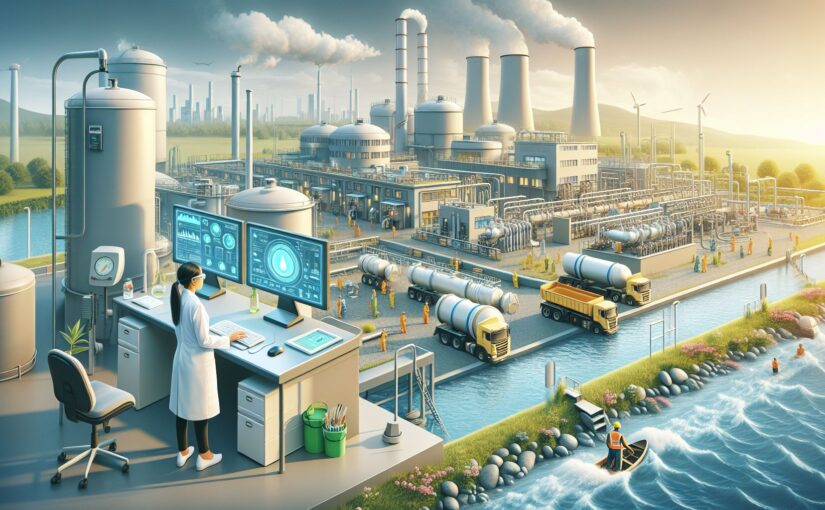In the face of rising environmental concerns, the pursuit of renewable energy sources becomes a pressing need. An exciting and perhaps surprising option, is to extract this precious energy from an unexpected source – wastewater. Slowly but steadily, the prospect of harnessing renewable energy from wastewater is gaining ground in scientific and ecological circles, presenting a promising solution to multiple challenges (1).
What makes wastewater a viable source of renewable energy?
The wastewater that’s typically discarded by residences, commercial establishments and industries, contains valuable organic matter. These organics can actually be harnessed and converted into bioenergy through various processes like microbial fuel cells (MFCs), anaerobic digestion, and electroactive biofilms (2). Not only does this provide renewable energy, but it also helps treat and clean the wastewater, vastly reducing its contaminants before it’s released into the environment.
How is energy harnessed from wastewater?
There are different ways to extract energy from wastewater, and one of the most effective ones is to employ the use of Microbial Fuel Cells (MFCs). In simple terms, an MFC functions like a battery, using bacteria to convert organic material present in wastewater into electricity.
In these microbial fuel cells, groups of bacteria metabolize organic compounds present in the water, releasing protons and electrons as by-products. Anode-respiring bacteria transfer these electrons to an anode, they are then conducted to a cathode via an external circuit, and voila -this generates electricity.
There’s more coming up.
An even more effective technology is the Microbial Electrolysis Cell (MEC) which uses a similar process, but applies an external voltage to get hydrogen gas, a very efficient and clean energy source. By generating this renewable energy, we not only contribute to a greener planet, but also dramatically reduce the costs related with wastewater treatment (3).
Looking ahead
Needless to say, the technology and processes involved in the extraction of energy from wastewater are still evolving. There remain hurdles like the high initial cost of setting up plants equipped with this technology and perfecting the process to increase the output of energy. However, with continuous research and development, and with the potential benefits it offers, renewables from wastewater seems the way forward.
As researchers, industries, and governments across the globe are increasingly realising the benefits of renewable energy from wastewater, it’s hoped that it won’t be long before this innovation becomes the norm rather than the exception. And perhaps one day, every drop of wastewater would not be waste, but fuel for a greener planet.
References:
